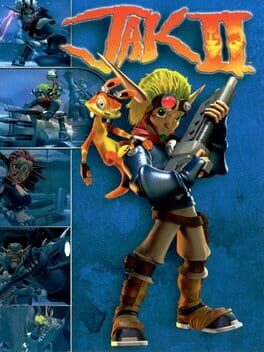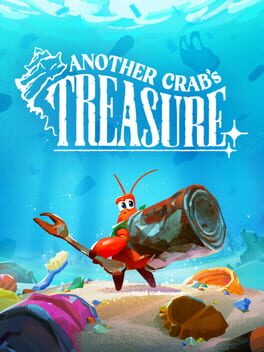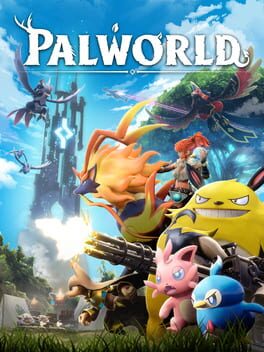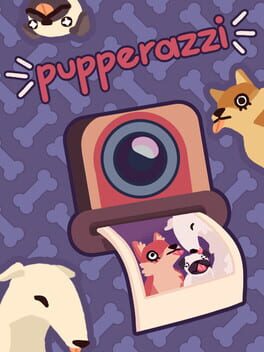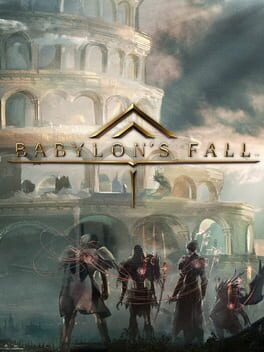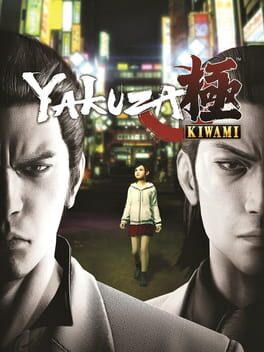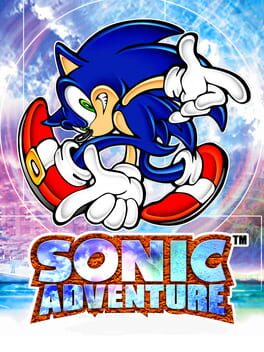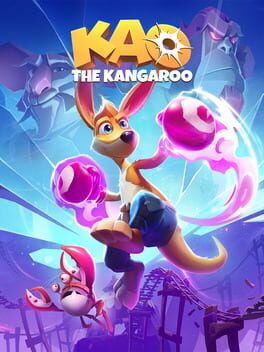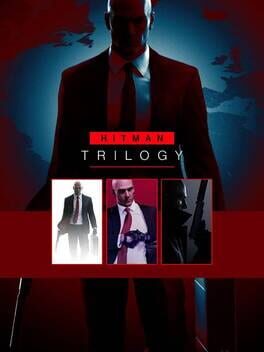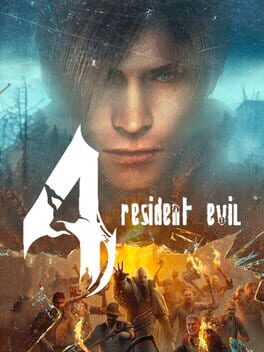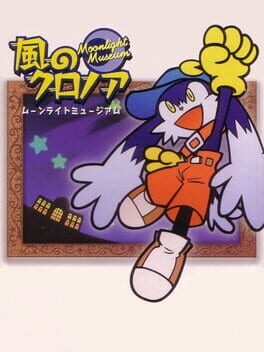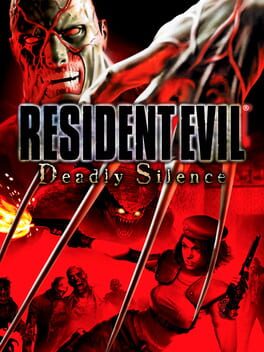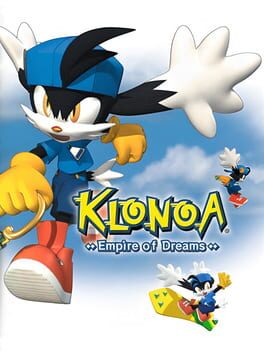Kremdanieko
Tears of the Kingdom improves on Breath of the wild on most fronts. The world feels fresh in spite of a reused map, the NPCs feel more alive than they ever did in BOTW, and the dungeon selection this time around is more fitting of that title, although still not perfect.
Link's new toolkit is more interesting and creative than the one in BOTW could ever hope to be and results in some simple but satisfying puzzles. As well as the creative freedom within the puzzle solving that Breath of the Wild was celebrated for.
Without delving into spoiler territory I also found the narrative told to actually be fairly engaging this time around. There was enough ties between the events in the past and present to make me invested in what was going to happen, even if it's still a fairly conventional beat ganon narrative.
This title won't convince anyone that didn't much care for Breath of the Wild, but as a huge Zelda fan that enjoyed that game, Tears of the Kingdom is what I truly wanted from the first title 6 years ago.
Link's new toolkit is more interesting and creative than the one in BOTW could ever hope to be and results in some simple but satisfying puzzles. As well as the creative freedom within the puzzle solving that Breath of the Wild was celebrated for.
Without delving into spoiler territory I also found the narrative told to actually be fairly engaging this time around. There was enough ties between the events in the past and present to make me invested in what was going to happen, even if it's still a fairly conventional beat ganon narrative.
This title won't convince anyone that didn't much care for Breath of the Wild, but as a huge Zelda fan that enjoyed that game, Tears of the Kingdom is what I truly wanted from the first title 6 years ago.
2003
I could write many paragraphs about every little thing that annoyed me about this game. From the mediocre soundtrack where you'll mostly hear the droning alert theme, the cramped open world, or the unsatisfying and frustrating gunplay.
Instead I'm going to say that buried within the muck and filth that is this trend-chasing derivative mess, there's a Jak sequel I wish I was playing instead. The few all too short levels taking advantage of the jetboard. Mixing it in with proper platforming and reasonable enemy spawns.
If Naughty Dog had made that game I would've swallowed the weird edgelord tone no problem. Instead it's a game I never want to return to.
Instead I'm going to say that buried within the muck and filth that is this trend-chasing derivative mess, there's a Jak sequel I wish I was playing instead. The few all too short levels taking advantage of the jetboard. Mixing it in with proper platforming and reasonable enemy spawns.
If Naughty Dog had made that game I would've swallowed the weird edgelord tone no problem. Instead it's a game I never want to return to.
The unique ideas that Crab Souls brings to the formula are an entertaining mixup to be sure, but they don't hide the issues I had with the game.
Enemy stats seem overtuned. Even with a lot of stats put into attack, it never felt like it made a difference. Their damage output is also kind of absurd. Being prone to two-shotting the player at any given time.
Bosses felt the most balanced. Predictable but tricky attack timings and movesets that felt more in line with Dark Souls 1 than the later titles in that franchise. They were the highlight of the experience for me because of this.
The writing was winceworthy to me and I really didn't like the characterization of the main character. The overuse of the word "kiddo" also bugged me as I went on. Seeing as a prominent character will call the protagonist this about 50 times every conversation with her.
The game is on gamepass and I'd probably reccommend playing it there if you really like souls clones. It has some neat ideas, but unfortunate jank and lacking enemy variety prevent it from being something really special.
Enemy stats seem overtuned. Even with a lot of stats put into attack, it never felt like it made a difference. Their damage output is also kind of absurd. Being prone to two-shotting the player at any given time.
Bosses felt the most balanced. Predictable but tricky attack timings and movesets that felt more in line with Dark Souls 1 than the later titles in that franchise. They were the highlight of the experience for me because of this.
The writing was winceworthy to me and I really didn't like the characterization of the main character. The overuse of the word "kiddo" also bugged me as I went on. Seeing as a prominent character will call the protagonist this about 50 times every conversation with her.
The game is on gamepass and I'd probably reccommend playing it there if you really like souls clones. It has some neat ideas, but unfortunate jank and lacking enemy variety prevent it from being something really special.
2024
For the record I only played this for 2 and a half hours.
The game is a grinding simulator and nothing about it feels good. Jumping, climbing, attacking, etc. feels like empty air, the sound effects are both bad and also don't work half the time, and the games aesthetics feel messy.
Fighting alongside your pokemon would be novel but there's nothing to it since they just do their own thing, poorly. They get stuck and sometimes disappear into the ether.
The game as a whole feels like it was made with a machine. Just a mishmash of the most popular games and genres out there at the current time. With their own original designs being random aspects of existing pokemon slapped together to create their "original" designs.
If you feel you HAVE to try it out, try it out with gamepass and play something actually good while you're subscribed.
The game is a grinding simulator and nothing about it feels good. Jumping, climbing, attacking, etc. feels like empty air, the sound effects are both bad and also don't work half the time, and the games aesthetics feel messy.
Fighting alongside your pokemon would be novel but there's nothing to it since they just do their own thing, poorly. They get stuck and sometimes disappear into the ether.
The game as a whole feels like it was made with a machine. Just a mishmash of the most popular games and genres out there at the current time. With their own original designs being random aspects of existing pokemon slapped together to create their "original" designs.
If you feel you HAVE to try it out, try it out with gamepass and play something actually good while you're subscribed.
2022
Taking pictures is one of the more finnicky mechanics in many games. Having the game fail to register something can be frustrating, but for the most part it's never too big a deal.
In pupperazzi, the entire game is based around the premise of taking pictures of dogs, meaning the mechanics of the picture taking must work the majority of the time. Of course, this isn't the case at all. The games detection system seems wonky at best as taking pictures of a dog directly in the centre of the camera head on will sometimes result in the fake comments asking what dog is supposed to be the focus. The quests are similarly arbitrary with several of them not registering the dog properly despite the conditions being met.
There are essentially no extra features to grab your interest outside of taking pictures of dogs. The appeal only lasts for a very short amount of time before the game gets far too dull to continue playing.
The aesthetics are fine. However there's a strange lag that appears frequently despite the graphics being very unremarkable. Dogs and other elements having the absolute bare minimum animation, mostly consisting of the static models stretching & squashing a bit as they move.
The written text is nauseatingly "soft" "uwu" "pupper" type dialogue that made me roll my eyes to the point it hurt several times. The gimmick gets old immediately and only results in frustration at best.
Possibly the most shocking to me was that the UI design is absolutely horrific. Poorly explained and implemented. I was struggling for a good few minutes on how to even deliver on quests at all. The other menus are lacking too. No button remapping in any capacity, no real graphics settings, and the only other notable option being a setting to turn off moving cars.
Don't buy the game, don't even give it a chance on gamepass. There are far better things you can do with your time than waste it on something as dull as pupperazzi.
In pupperazzi, the entire game is based around the premise of taking pictures of dogs, meaning the mechanics of the picture taking must work the majority of the time. Of course, this isn't the case at all. The games detection system seems wonky at best as taking pictures of a dog directly in the centre of the camera head on will sometimes result in the fake comments asking what dog is supposed to be the focus. The quests are similarly arbitrary with several of them not registering the dog properly despite the conditions being met.
There are essentially no extra features to grab your interest outside of taking pictures of dogs. The appeal only lasts for a very short amount of time before the game gets far too dull to continue playing.
The aesthetics are fine. However there's a strange lag that appears frequently despite the graphics being very unremarkable. Dogs and other elements having the absolute bare minimum animation, mostly consisting of the static models stretching & squashing a bit as they move.
The written text is nauseatingly "soft" "uwu" "pupper" type dialogue that made me roll my eyes to the point it hurt several times. The gimmick gets old immediately and only results in frustration at best.
Possibly the most shocking to me was that the UI design is absolutely horrific. Poorly explained and implemented. I was struggling for a good few minutes on how to even deliver on quests at all. The other menus are lacking too. No button remapping in any capacity, no real graphics settings, and the only other notable option being a setting to turn off moving cars.
Don't buy the game, don't even give it a chance on gamepass. There are far better things you can do with your time than waste it on something as dull as pupperazzi.
2022
2016
1998
The modern interpretation of Sonic Adventure seems to have flipped over the past few years. It's the reason I've decided to give the game a shot in the first place. From everyone tearing it apart just some years ago to extreme love for the game. With praise given to the original release on Dreamcast over the DX version available on modern hardware, claiming it lacks the issues that DX had. And while that may be true, Sonic Adventure is still a buggy mess of a game split between 6 gameplay styles each with their own inherent flaws on the original Dreamcast release.
The camera in this game is truly horrendous, getting stuck on terrain constantly, as well as swapping between fixed "cinematic" perspectives and player controlled camera angles on a dime. It's hard to judge perspective at times, and the game will repeatedly refuse to give you a good angle for platforming.
This isn't to mention scripted sequences breaking if you dare do anything the game wasn't prepared for, most often resulting in death. Characters glitching into geometry or simply not handling changes in elevation well at all, Sonic especially suffers from this as he goes from 0 to 100 far too quickly and becomes a troublesome mess to control.
There are some minor highlights in the game. Some of the music is alright, but unfortunately none of it ever reaches the heights of previous or future games and the game will never let you listen to a lot of it until it stops the music, then proceeds to play the exact same song from the start over and over again.
The cutscenes are stilted and poorly directed. Mostly uninteresting talking or vague action scenes that just look awful. They don't add much of value and it's a shame you can't skip them.
Sonic Adventure gives you the unique opportunity to fear using your controller, as well as not using your controller, as there's simply no way to tell what the game will do until you figure it out through trial and error. Sonic especially will careen wildly side to side with the slightest touch of the analogue stick. And in spite of being on a system with 4 face buttons, the developers opted to place several functions on a single "action button". At times Sonic will decide not to do the homing attack as he'd rather dash to his death, and the input for the light speed dash is too slow and could've simply been moved to its own separate button with no issue.
The age old saying "Sonic had a rough transition into 3D" is sugar-coating it, to put it lightly. Sonic truly had a disastrous transition into 3D, and no amount of "vibes" will fix this.
The camera in this game is truly horrendous, getting stuck on terrain constantly, as well as swapping between fixed "cinematic" perspectives and player controlled camera angles on a dime. It's hard to judge perspective at times, and the game will repeatedly refuse to give you a good angle for platforming.
This isn't to mention scripted sequences breaking if you dare do anything the game wasn't prepared for, most often resulting in death. Characters glitching into geometry or simply not handling changes in elevation well at all, Sonic especially suffers from this as he goes from 0 to 100 far too quickly and becomes a troublesome mess to control.
There are some minor highlights in the game. Some of the music is alright, but unfortunately none of it ever reaches the heights of previous or future games and the game will never let you listen to a lot of it until it stops the music, then proceeds to play the exact same song from the start over and over again.
The cutscenes are stilted and poorly directed. Mostly uninteresting talking or vague action scenes that just look awful. They don't add much of value and it's a shame you can't skip them.
Sonic Adventure gives you the unique opportunity to fear using your controller, as well as not using your controller, as there's simply no way to tell what the game will do until you figure it out through trial and error. Sonic especially will careen wildly side to side with the slightest touch of the analogue stick. And in spite of being on a system with 4 face buttons, the developers opted to place several functions on a single "action button". At times Sonic will decide not to do the homing attack as he'd rather dash to his death, and the input for the light speed dash is too slow and could've simply been moved to its own separate button with no issue.
The age old saying "Sonic had a rough transition into 3D" is sugar-coating it, to put it lightly. Sonic truly had a disastrous transition into 3D, and no amount of "vibes" will fix this.
2022
A fairly decent 3D platformer overall. The graphics are one of the highlights of the game. It looks fairly on par with the recent output from Toys for Bob with similar design ethos and lighting. Kao controls fairly well but the game is really easy and the levels are a bit too straightforward.
Kao the kangaroo lacks any defining feature to make it stand apart from the competition outside of being a reboot of a fairly obscure platforming mascot from Poland. The most it has are elemental powerups that you can imbue in your boxing gloves to solve puzzles, however the elemental powers are one note and never interact together or with the environment in any creative ways. You see a button surrounded by water you hit it with the ice glove, you see a cobweb, you hit it with the fire glove. There's an air glove but it gets so little use and shows up so late that it feels weird to even include at all.
So if it's lacking in originality, it should make up for it with quality, right? Well unfortunately Kao the Kangaroo is one of the least polished games I've played in a while.
Cutscenes are awkward with stiff animation, and the bland but bearable soundtrack will often decide not to trigger, leaving the game with this awkward empty silence. The only things breaking said silence being Kao's footsteps and grunts, because the levels mostly lack any kind of ambience to set the mood outside of the music.
The game features a lot of smashing pots and crates but it felt like half the time they wouldn't shatter into pieces but would instead simply despawn after just sitting there for a second. The world was also unfortunately very transparent, literally. The game opts to use the see through trick to help with camera issues, however a lot of the world becomes semitransparent almost all the time and it really hurts the games aesthetic. It's as distracting as something can be.
I enjoyed my time with the game, but I don't think it stands out among the crowd. Kao himself has some really fun bouncy animation and movement, and if you're really into platformers it's an alright way to spend a dozen hours but I wouldn't reccommend this over many of the other 3D platformers that have come out in recent years, and especially not over the classics that defined the genre.
I got the game on a half off sale and I'd say if you want something very casual and don't mind a little blandness, the Kao reboot is an okay option for that price. I just wish I could give it a better recommendation because there's clearly a lot of talent at Tate Multimedia.
Kao the kangaroo lacks any defining feature to make it stand apart from the competition outside of being a reboot of a fairly obscure platforming mascot from Poland. The most it has are elemental powerups that you can imbue in your boxing gloves to solve puzzles, however the elemental powers are one note and never interact together or with the environment in any creative ways. You see a button surrounded by water you hit it with the ice glove, you see a cobweb, you hit it with the fire glove. There's an air glove but it gets so little use and shows up so late that it feels weird to even include at all.
So if it's lacking in originality, it should make up for it with quality, right? Well unfortunately Kao the Kangaroo is one of the least polished games I've played in a while.
Cutscenes are awkward with stiff animation, and the bland but bearable soundtrack will often decide not to trigger, leaving the game with this awkward empty silence. The only things breaking said silence being Kao's footsteps and grunts, because the levels mostly lack any kind of ambience to set the mood outside of the music.
The game features a lot of smashing pots and crates but it felt like half the time they wouldn't shatter into pieces but would instead simply despawn after just sitting there for a second. The world was also unfortunately very transparent, literally. The game opts to use the see through trick to help with camera issues, however a lot of the world becomes semitransparent almost all the time and it really hurts the games aesthetic. It's as distracting as something can be.
I enjoyed my time with the game, but I don't think it stands out among the crowd. Kao himself has some really fun bouncy animation and movement, and if you're really into platformers it's an alright way to spend a dozen hours but I wouldn't reccommend this over many of the other 3D platformers that have come out in recent years, and especially not over the classics that defined the genre.
I got the game on a half off sale and I'd say if you want something very casual and don't mind a little blandness, the Kao reboot is an okay option for that price. I just wish I could give it a better recommendation because there's clearly a lot of talent at Tate Multimedia.
2022
I will preface this review by saying that I played the game through gamepass, so the pricing didn't affect me.
The Hitman trilogy is one of the best stealth action games I've played. The amount of content is astounding, the level design superb, the mechanics very fluid and intuitive. The Hitman trilogy combined into one package is a wonderfully lengthy and meaty experience as someone that hasn't played these games before. The level of detail present in each mission and the variety of ways you can assassinate a target, both with the more linear "mission stories" and with your own approach is impressive.
Narratively speaking, there isn't too much to say. The trilogy as a whole is about taking down this games equivalent of the illuminati, with a few twists and turns to keep it somewhat interesting.
The always online element only reared its ugly head and got in the way a few times. At one point it connected to the server in the middle of a cutscene and reset it.
If you have gamepass, or if you're not concerned with spending the asking price, the Hitman trilogy is absolutely worth playing. If you're into stealth games, you won't regret it.
The Hitman trilogy is one of the best stealth action games I've played. The amount of content is astounding, the level design superb, the mechanics very fluid and intuitive. The Hitman trilogy combined into one package is a wonderfully lengthy and meaty experience as someone that hasn't played these games before. The level of detail present in each mission and the variety of ways you can assassinate a target, both with the more linear "mission stories" and with your own approach is impressive.
Narratively speaking, there isn't too much to say. The trilogy as a whole is about taking down this games equivalent of the illuminati, with a few twists and turns to keep it somewhat interesting.
The always online element only reared its ugly head and got in the way a few times. At one point it connected to the server in the middle of a cutscene and reset it.
If you have gamepass, or if you're not concerned with spending the asking price, the Hitman trilogy is absolutely worth playing. If you're into stealth games, you won't regret it.
2021
The slow pace, stop and start action of the original Resident Evil 4 has not been replicated here, however it brings its own unique flavour to the mix that has been excellently pulled off.
Being able to pull off stunts like dual wielding a pistol and a shotgun feels oddly at home in RE4, and adds an arcadey spice to the experience that had me hooked from start to finish. Giving Leon both full 360 degree movement and sprinting makes duking it out with the ganados much easier, and reloading has few stakes compared to other VR shooters as Leon will automatically empty the previous magazine when you pick up a new one, and just like the original, no bullets are lost by reloading an almost full gun.
Bonus modes such as Mercenaries and the Ada Wong campaign are, at the time of this review, not in this version of the game. It's unfortunate that this is the case as the speedier nature and arcadey feel would make Mercenaries in particular feel right at home.
Visually, the game has seen updates, however it's somewhat hard to really tell as textures are still low resolution, and the frequent loading zones are still present. However load times are short and the limited graphics means there's no framerate issues to be found. There's a hefty load time when you first start up the game but after that it's smooth sailing.
The story has been kept mostly intact. Leon's zingers and oneliners are still present, however almost any flirty dialogue has been removed from the game outright. The radio conversations have been turned into a semi-interactive element along with a few interactions previously only done by pressing a button or a QTE. This makes certain cutscenes still being present or presented in the theatre view feel out of place. Showcasing the area up ahead in a flat theatre view feels out of place when I can see it for myself in VR a few seconds later.
Overall, this is not the RE4 that you're acquainted with. While it keeps practically every mechanic, the reworking of the game in VR makes it feel much faster paced, much more arcadey, and much more unique than previous ports of this classic shooter.
Being able to pull off stunts like dual wielding a pistol and a shotgun feels oddly at home in RE4, and adds an arcadey spice to the experience that had me hooked from start to finish. Giving Leon both full 360 degree movement and sprinting makes duking it out with the ganados much easier, and reloading has few stakes compared to other VR shooters as Leon will automatically empty the previous magazine when you pick up a new one, and just like the original, no bullets are lost by reloading an almost full gun.
Bonus modes such as Mercenaries and the Ada Wong campaign are, at the time of this review, not in this version of the game. It's unfortunate that this is the case as the speedier nature and arcadey feel would make Mercenaries in particular feel right at home.
Visually, the game has seen updates, however it's somewhat hard to really tell as textures are still low resolution, and the frequent loading zones are still present. However load times are short and the limited graphics means there's no framerate issues to be found. There's a hefty load time when you first start up the game but after that it's smooth sailing.
The story has been kept mostly intact. Leon's zingers and oneliners are still present, however almost any flirty dialogue has been removed from the game outright. The radio conversations have been turned into a semi-interactive element along with a few interactions previously only done by pressing a button or a QTE. This makes certain cutscenes still being present or presented in the theatre view feel out of place. Showcasing the area up ahead in a flat theatre view feels out of place when I can see it for myself in VR a few seconds later.
Overall, this is not the RE4 that you're acquainted with. While it keeps practically every mechanic, the reworking of the game in VR makes it feel much faster paced, much more arcadey, and much more unique than previous ports of this classic shooter.
A solid puzzle platformer using the mechanics of Klonoa on the PS1 in a 2D space and going wild with the puzzle designs you could create out of them.
The music ranges from pretty good to downright painful, and you better hope you enjoy listening to crunchy WAHOOS a lot because this game has them in spades. On the flipside, the visuals of the game are very charming, and the pictures you'd unlock by collecting all the dream stones had me hunting them down in each stage.
The game has 5 regular worlds with 6 stages each and then a final EX world that's absolutely brutal. Transitioning from the bare bones mechanics you'd get out of Klonoa's abilities and slowly expanding into an entertaining challenge.
Moonlight Museum took its time to become something I truly enjoyed and appreciated, but once it did it was an absolute delight.
The music ranges from pretty good to downright painful, and you better hope you enjoy listening to crunchy WAHOOS a lot because this game has them in spades. On the flipside, the visuals of the game are very charming, and the pictures you'd unlock by collecting all the dream stones had me hunting them down in each stage.
The game has 5 regular worlds with 6 stages each and then a final EX world that's absolutely brutal. Transitioning from the bare bones mechanics you'd get out of Klonoa's abilities and slowly expanding into an entertaining challenge.
Moonlight Museum took its time to become something I truly enjoyed and appreciated, but once it did it was an absolute delight.
A fantastic port of an incredible game. Stocked with its own arranged mode with DS gimmicks as well as the original experience, alongside brilliant QoL additions such as cutscene/door skip and quickturn make this one of the best ways to play the classic that started the franchise.
Absolutely reccommended!!
Absolutely reccommended!!
As a followup to Moonlight Museum, Empire of Dreams tightens up the controls a bit, the visuals are obviously much more vivid and appealing, and it introduces some new mechanics to toy with.
Unfortunately it never reaches the highs of the previous game and its puzzle design feels neutered in comparison. Boss fights, jetboard stages, and autoscrolling stages focused on timed platforming over any amount of core puzzle solving dilutes the experience of the game as a whole.
Moonlight Museum felt confident in its lack of gimmick stages or boss fights. Focusing purely on making the puzzle solving engaging for an entire playthrough, with cute little pictures as rewards for players that went out of their way to get the most out of the game. In contrast, Empire of Dreams lacks any real completionists bonus aside from half the amount of EX stages as its predecessor had.
A decent game overall, but disappointing coming right off Moonlight Museum.
Unfortunately it never reaches the highs of the previous game and its puzzle design feels neutered in comparison. Boss fights, jetboard stages, and autoscrolling stages focused on timed platforming over any amount of core puzzle solving dilutes the experience of the game as a whole.
Moonlight Museum felt confident in its lack of gimmick stages or boss fights. Focusing purely on making the puzzle solving engaging for an entire playthrough, with cute little pictures as rewards for players that went out of their way to get the most out of the game. In contrast, Empire of Dreams lacks any real completionists bonus aside from half the amount of EX stages as its predecessor had.
A decent game overall, but disappointing coming right off Moonlight Museum.
1986
As a fan of the Zelda games, it's taken me an almost shocking amount of time to properly indulge in the original title of the series. The game that every successive game still takes ideas and concepts from to form the baseline core of this longstanding series.
The Legend of Zelda is an interesting relic from its time. Relatively quaint and rather short for its massive franchise, the game generally manages to not overstay its welcome, however certain elements of the game are purposefully obtuse, some to the point of being a bit unfair without some sort of guide. This is mostly only an issue with minor caves, but unfortunately also an issue with discovering the entrance to one of the major required levels of the game.
I'd hesitate to say it succeeds in making the journey feel like a proper adventure with its shockingly small map, but discovering secrets and powering Link up throughout is generally satisfying overall, and being able to discover late game dungeons before even finding earlier ones, and challenging yourself with them gives a sense of freedom that other Zelda games still fail to replicate for the most part.
Unfortunately, the game gets rather frustrating in later levels and even in the overworld with certain enemies seemingly designed to do nothing but frustrate and get in the way, several with awkward random movements that make it hard to land hits without getting hurt yourself.
A decent curiosity to be sure, one worth visiting if you're already a fan of Zelda and want to peek into where it all began, however it's only something I could possibly reccommend to people with patience and a tolerance for older, stiffer games.
The Legend of Zelda is an interesting relic from its time. Relatively quaint and rather short for its massive franchise, the game generally manages to not overstay its welcome, however certain elements of the game are purposefully obtuse, some to the point of being a bit unfair without some sort of guide. This is mostly only an issue with minor caves, but unfortunately also an issue with discovering the entrance to one of the major required levels of the game.
I'd hesitate to say it succeeds in making the journey feel like a proper adventure with its shockingly small map, but discovering secrets and powering Link up throughout is generally satisfying overall, and being able to discover late game dungeons before even finding earlier ones, and challenging yourself with them gives a sense of freedom that other Zelda games still fail to replicate for the most part.
Unfortunately, the game gets rather frustrating in later levels and even in the overworld with certain enemies seemingly designed to do nothing but frustrate and get in the way, several with awkward random movements that make it hard to land hits without getting hurt yourself.
A decent curiosity to be sure, one worth visiting if you're already a fan of Zelda and want to peek into where it all began, however it's only something I could possibly reccommend to people with patience and a tolerance for older, stiffer games.

